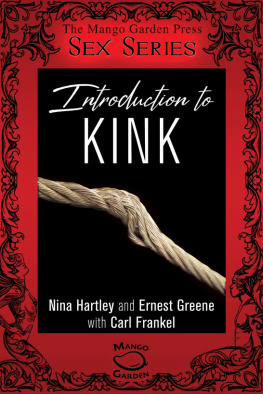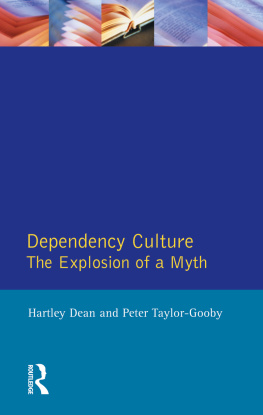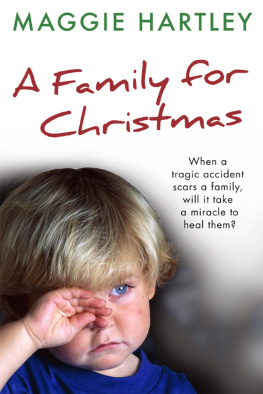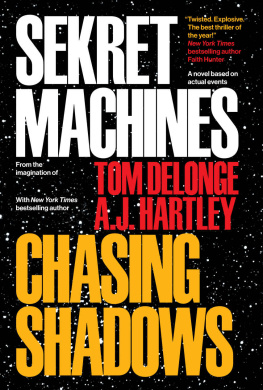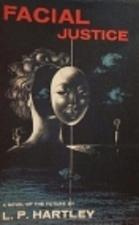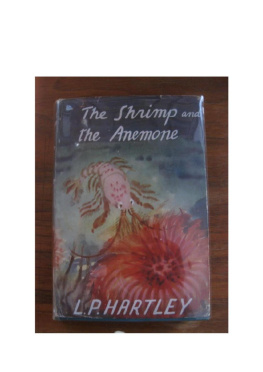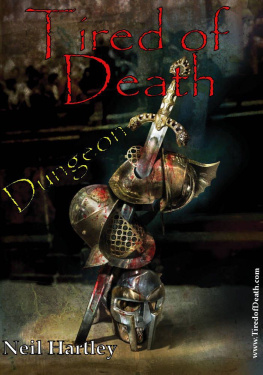Andrew Hartley - Act of Will
Here you can read online Andrew Hartley - Act of Will full text of the book (entire story) in english for free. Download pdf and epub, get meaning, cover and reviews about this ebook. year: 2009, genre: Romance novel. Description of the work, (preface) as well as reviews are available. Best literature library LitArk.com created for fans of good reading and offers a wide selection of genres:
Romance novel
Science fiction
Adventure
Detective
Science
History
Home and family
Prose
Art
Politics
Computer
Non-fiction
Religion
Business
Children
Humor
Choose a favorite category and find really read worthwhile books. Enjoy immersion in the world of imagination, feel the emotions of the characters or learn something new for yourself, make an fascinating discovery.
- Book:Act of Will
- Author:
- Genre:
- Year:2009
- ISBN:978-0-7653-2124-4
- Rating:3 / 5
- Favourites:Add to favourites
- Your mark:
- 60
- 1
- 2
- 3
- 4
- 5
Act of Will: summary, description and annotation
We offer to read an annotation, description, summary or preface (depends on what the author of the book "Act of Will" wrote himself). If you haven't found the necessary information about the book — write in the comments, we will try to find it.
Act of Will — read online for free the complete book (whole text) full work
Below is the text of the book, divided by pages. System saving the place of the last page read, allows you to conveniently read the book "Act of Will" online for free, without having to search again every time where you left off. Put a bookmark, and you can go to the page where you finished reading at any time.
Font size:
Interval:
Bookmark:
A. J. Hartley
Act of Will
(Will Hawthorne 1)
To Chris, my brother-in-arms.
ACT
of
WILL
BY
WILLIAM HAWTHORNE
Translated from the Thrusian by
A. J. HARTLEY


TRANSLATORS PREFACE
Until a few years ago, the collection of manuscripts now known as the Hawthorne Saga had been sitting in a climate-controlled case in an obscure English library for over a century, baffling all attempts to decipher the strange language in which they were written. We knew from library records that they were once part of the Fossington collection and that they were almost lost when the east wing of Fossington House was badly damaged by fire in 1784. Parts of the second manuscript showed some light scorching, and there was moderately severe water damage to much of the first book, but how they were originally acquired and from where remains a mystery. The eighteenth-century records refer to the crate of Fossington manuscripts only as handwritten, very old, bound in calf, in indecipherable cursive: language unknown.
Being completely unreadable, the manuscripts would have remained no more than linguistic and historical curiosities were it not for the recent discovery of certain papers located in the attic of an Elizabethan manor house in Oxfordshire, the precise location of which I am not at liberty to reveal. I was first shown these papers eight years ago. Various experts concurred that the author was none other than the famous translator Sir Thomas Henby (15421609). The papers were all in Elizabethan secretary hand and difficult to read, which is the only explanation I can offer for not immediately recognizing that while some of them were in plain English, others were actually transcripts of the strange language featured in the Fossington House papers. Even after I had made the connection, it was another year before I realized that the English pages were actually translations of the so-called indecipherable cursive of the Fossington manuscripts, which actually turned out to be a previously undocumented language: Thrusian. How and with what assistance, if any, Henby accessed the key to this remarkable literary find, I cannot begin to imagine, but there is no question that he did, and left both direct translations of several dozen pages and notes by which the rest might be rendered into English.
I have made up for my slowness to realize the significance of my find by diligent work on the manuscripts ever since. Using Henbys translations and notes as a kind of Rosetta stone, I have been able to work out the grammar, diction, and tone of the Fossington House papers, which I have renamed the Hawthorne Saga for reasons that will become apparent. In the translation, I have used a modern, colloquial style in an attempt to capture-or at least echo-the uniquely sprightly and energetic Thrusian used by the author. The book in your hands, faithfully translated from the original, is the result. I only hope that you find my labor in bringing this ancient text to light to be worth the reading. If this meets with sufficient approval and I encounter no serious hurdles in the translation, I plan to complete work on the second volume of the series approximately one year from now.
A. J. Hartley, 2009
No identification of the place-or even the period-from which the original came has yet been made. All attempts to identify known landmarks, places, or geographical features have failed. Militarily, it lacks gunpowder and therefore seems early medieval, but the culture as presented seems later, more in accord with Renaissance Europe.
SCENE I Show Business
It was my eighteenth birthday, which meant that my theatre apprenticeship was officially over: now the company would either take me on as a full member, or they would cut me loose. Either way, this would be my last day in a dress. Thank God.
Im not sure why the Empire doesnt allow women onstage. Its pretty stupid when you stop to think about it. But everyone is used to it and it keeps the likes of me in steady work, so Im not complaining. Admittedly, most of the parts I got as a woman were comprised of simpering love poetry and vacant smiles, but once in a while I got to do a good death scene, or double as a nameless soldier in a battle, or something. That was pretty fun, and it got me out of those bloody corsets for ten minutes or so.
But none of it equaled the time I got to play a prince. I had three long speeches and a fight scene and, best of all, I got to write some of my own lines. (All actors think theyre poets. Most of them arent.) I got a standing ovation at the end of each performance. Not all the boy actors graduate to mens roles, but I was the best we had at the moment, so I figured thered still be a job for me when I hung up my skirt for the last time. Probably. Not everyone in the company appreciated my talents, of course, least of all the really stupid ones, who-needless to say-had a lot of sway in the company. If they didnt take me in as an actor, Id probably be able to make a living writing for them, but it wouldnt be much of a living, so I was a bit apprehensive about what theyd tell me after the show.
That was when it would happen. After the stage had been swept and the taproom closed, before they got everyone back out to rehearse the next days show, theyd meet and vote and call me into the green room for their verdict. Then Id be an actor, a writer, or both, or Id be homeless with no source of income till I could cobble a play together and sell it.
I should say that being an eighteen-year-old in Cresdon means that youve been a man for at least half a decade already, even if youve made your living in a dress. I cant compare it to other places, and Im sure there are kids my age whose comfort and happiness are still carefully engineered by other people, but unless youre gentry where I live, you pretty much have to claw your way into manhood, and theres plenty who dont make it. Kids starve, or they get beaten to death by their so-called benefactors, or they get sold into slavery. Im not trying to shock you or convince you that Im some kind of hero for making it this long; but I dont want you thinking youre going to get a tale about some blue-eyed tyke with a heart of gold in a world where good triumphs over evil. Youre not, Im not, and in my experience it never does.
Just so were clear.
Anyway. I lived less than half a mile from the theatre, but one of those impromptu markets which Cresdons residents seem so fond of had spontaneously appeared right outside the goldsmiths on Aqueduct Street. I was soon up to my armpits in goats and cheese and bales of smelly wool imported by the equally smelly herders from the Ashran Plains, north of the city. By the time I reached the backstage entrance of the Eagle Theatre, I could already hear the bugles finishing up, which meant they were halfway through what passed for a musical introduction: a florid-faced idiot called Rufus Ramsbottom and an instrument (in the loosest possible sense of the word) which he claimed was an Andastrian bagpipe but which sounded like three cats and a chicken tied together in a sack. Not that anyone took any notice. This was strictly background noise to make the paying public feel that something was starting, thus encouraging them to focus on the crucial business of buying one last pint and fighting each other for seats.
The Eagle sat at the end of a dim alley which, like all the others in the city at this time of year, was hot, muddy, and rank with the odors of wandering livestock and abandoned refuse. It was a typical Cresdon theatre: round (near enough), with a raised thrust stage, a pair of stage entrances, a balcony, a discovery space, and a trapdoor to the cellarage. The house held close to three thousand, packing eight hundred standing into the pit and seating the rest in three galleries, one on top of the other. The best view of the stage was from up top and would cost you three standard silver pieces, but you could get a good deal if you were prepared to stand down front. Some of the local aristos would pay six or seven silvers to actually sit on the stage and show off their fancy new duds, something all the actors hated with a passion. They never kept still and you were lucky if they did no more than yawn and wave to their friends. Sometimes they gave you acting notes or stopped the show to argue a plot point. Rich people always think they know best.
Font size:
Interval:
Bookmark:
Similar books «Act of Will»
Look at similar books to Act of Will. We have selected literature similar in name and meaning in the hope of providing readers with more options to find new, interesting, not yet read works.
Discussion, reviews of the book Act of Will and just readers' own opinions. Leave your comments, write what you think about the work, its meaning or the main characters. Specify what exactly you liked and what you didn't like, and why you think so.




